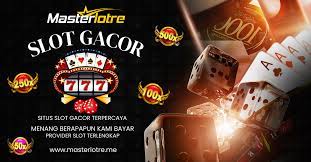Players insert money or credits into the machine and choose their bet amount and the number of paylines (in video slot dana). Upon pressing the spin button, the RNG generates a random sequence of numbers that corresponds to the position of the symbols on the reels. If the symbols align in a winning combination along an active payline, the player receives a payout based on the game’s paytable.
Variety of Slots:
Slots come in a multitude of variations, catering to diverse player preferences. Some popular types include:
- Classic Slots: These resemble the original mechanical slot machines, featuring three reels, traditional symbols like fruits and bars, and simplistic gameplay.
- Video Slots: The most common type found in modern casinos, offering diverse themes, advanced graphics, animations, and various bonus features such as free spins, multipliers, and mini-games.
- Progressive Jackpot Slots: These games pool a portion of each bet into a jackpot prize, which continues to grow until a lucky player hits the winning combination, often resulting in life-changing payouts.
The Future of Slot Machines:
Advancements in technology, such as virtual reality (VR) and augmented reality (AR), hold promise for the future of slot machines. These innovations could transform the gaming experience by providing immersive and interactive gameplay, blurring the lines between the physical and digital worlds.
Furthermore, the integration of skill-based elements into slot games might attract a younger demographic, offering a different kind of engagement beyond pure chance.
In conclusion, slot machines have come a long way from their humble beginnings, evolving into high-tech entertainment centers in the gambling industry. Despite their evolution, slots continue to enthrall players with their blend of chance, excitement, and the allure of winning big. As technology progresses, the future of slots seems boundless, promising continued innovation and enhanced player experiences in the years to come.
